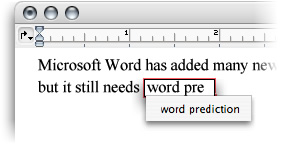Google Briefcase and Google Gears

Every few weeks I dive into my site reports and check out how my hits are doing and what searches land visitors here. Much to my surprise among the top search terms is "Google Briefcase." My basic idea with Google Briefcase was for a desktop application that automatically saves your recent e-mails, documents, spreadsheets, and calendar events to your computer so you can access them when you're not online. Originally I thought Google Briefcase could be a bit like Outlook or Palm Desktop, with different functions that correspond to the different Google services it interfaces with. Or perhaps, it could manage synchronization and there would be full client side versions of Gmail, Calendar, and Docs & Spreadsheets. But that all changed when I found out about Google Gears. Google Gears is a browser extension (for Firefox and IE) that enables web apps to run offline in the browser. Presumably this method would be a much more minimal development effort than creating full blown client-side versions of web applications. Google Reader already works with Gears and they should totally develop Gmail, Docs & Spreadsheets, and Calendar to work with Google Gears next. I can't wait to edit my Google Documents without a web connection, or look up an address or phone number I conveniently only have in my Gmail...
